Soybeans are one of the most important crops in the world, doubling up as a highly nutritious protein source for both humans and for livestock feed. But our hunger for this energising bean has led to vast amounts of deforestation and habitat conversion in some of the world’s most precious places, particularly in South America, the biggest soy producing region after the USA. Here, neighbouring the Amazon, is a lesser known ecosystem comprising vast savannahs, dry forests and gallery forests, that make up the Cerrado, home to 5% of the world’s biodiversity, including over 10,000 species of plants, many of which are found nowhere else on earth. The Cerrado also plays a vital role in the fight against climate change, storing an immense 13.8 billion tonnes of carbon. Unfortunately, this valuable habitat is being rapidly cleared to make way for soy and beef plantations.
And much of this deforestation is unnecessary. Research shows that there are more than 25 million hectares, an area larger than the size of the UK, of degraded or abandoned land that could be used to produce commodities like soy or beef, without the need for any more clearance of native vegetation..
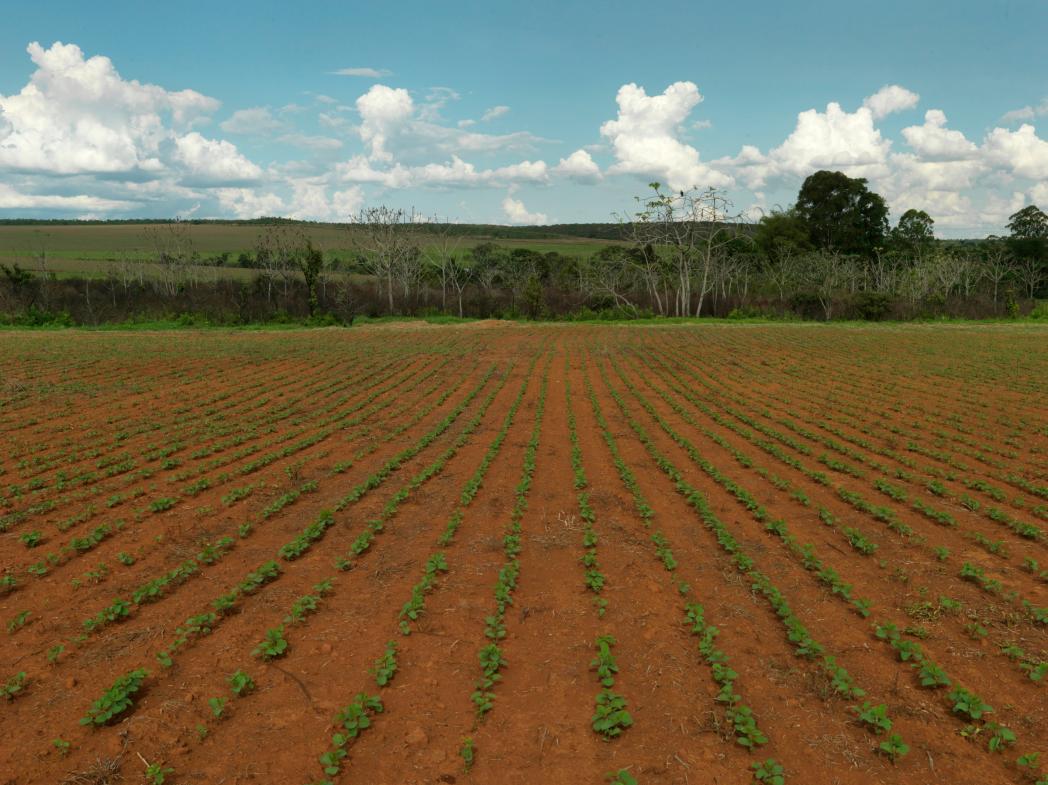
A soy farm in the Cerrado, Brazil
Are we really that hungry for soybeans?
Each of us in Europe consumes an average of 61kg of soy per year. That’s not coming from soy sauce or tofu, almost all of the soy we eat is embedded in animal products; in the meat, cheese, milk and eggs that we consume. In fact, over 75% of all soy produced is used to feed animals that we then consume. As the global appetite for meat and animal products grows, this fuels further demand for soy beans and puts greater pressure on the forests and savannahs of the Cerrado.
The UK is an important market for soy beans. Our Risky Business report, using data from 2015, revealed that we import around 3.3 million tonnes of soy per year, requiring an overseas land area of 1.68 million hectares to grow it, nearly 11 times the size of Greater London. Of this soy, 77% comes from locations with high deforestation risk, including vulnerable ecosystems in South America. Given our large overseas footprint, the UK must act on our responsibility to end soy driven deforestation in these key soy sourcing regions.
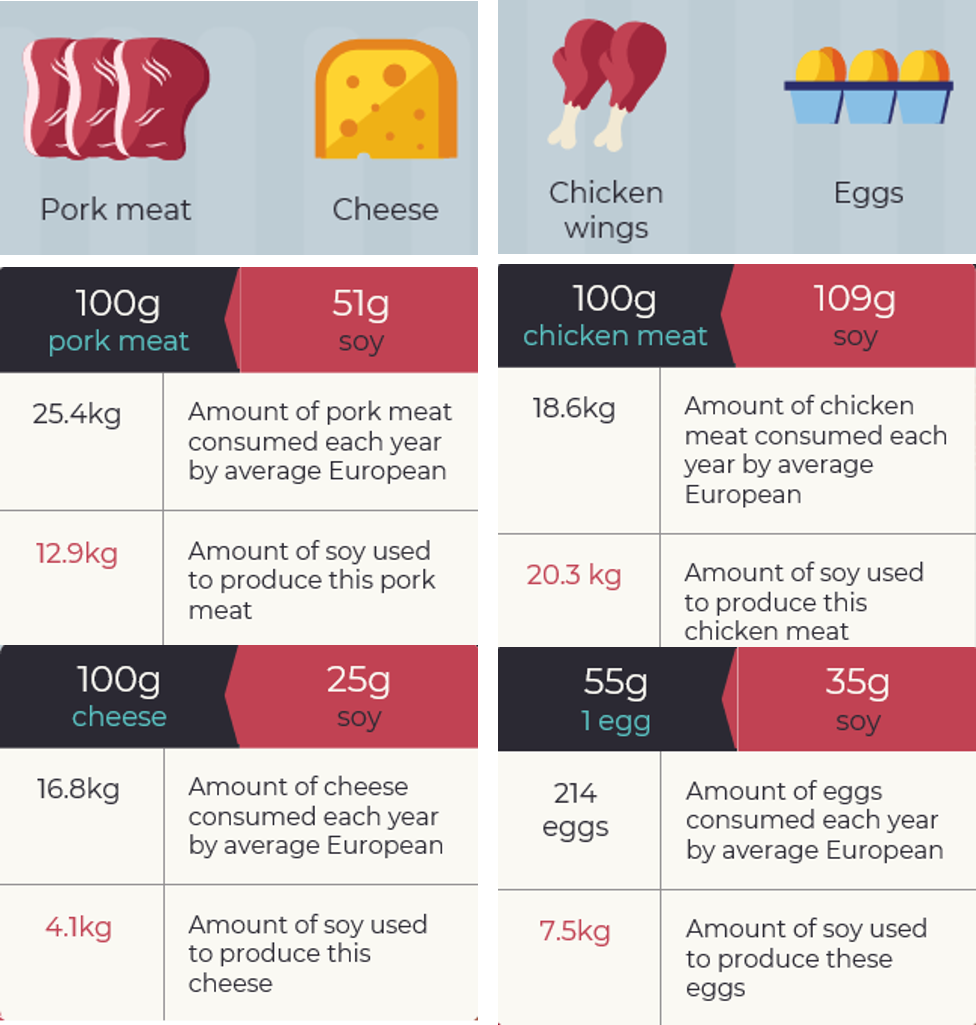
The soy we consume is embedded within other animal products, like pork, cheese, chicken and eggs. Explore our virtual fridge to see how much soy is hidden in the food you love.
So what is our UK government doing about it, and are companies listening?
In response to failing corporate pledges and a lack of action on soy, in 2018 the UK government came forward to form the UK Roundtable on Sustainable Soya. This was set up to call on UK industry to work towards a shared goal of tackling deforestation and habitat conversion in soy production, particularly focused on key sourcing regions in South America.
During the inaugural UK Roundtable meeting, UK industry committed to producing time-bound action plans for sourcing sustainable soy, with a deadline of April 2019. As of October 2019, 6 of the UK’s 10 major supermarket retailers have published, for the first time, time-bound commitments to support and source deforestation and conversion-free soy, along with action plans outlining how they plan to get there. This is a significant step forward for the biggest soy using companies in the UK and is a very welcome move from the sector. The onus is now on the remaining 4 retailers without action plans to catch up and publish these. But for the 6 who have committed the focus must now be on urgent implementation to achieve deforestation and conversion free soy supply as soon as possible.
But are all retail soy policies equal?
We have delved a little deeper into the commitments and policies published by our most popular UK retailers, using only publicly available information, to see how they stack up. We have assessed and awarded points to each retailer based on how far we think their policies, action plans and wider efforts are stacking up to advance progress towards deforestation-free soy. We looked at policies from Aldi, Asda, Iceland, Lidl, Marks and Spencer’s, Morrisons, Sainsbury’s, Tesco, The Co-Op and Waitrose. For this exercise we used information based only on retailers’ UK supply chains, however in the future we expect retailers to publish policies which apply to any international operations too.
We awarded points based on whether the policies included the following essential features:
- An ambitious and time-bound commitment to 100% deforestation and conversion-free soy;
- A clear and robust action plan, with transparency on steps being taken to achieve commitment;
- Use of credible deforestation and conversion-free standards;
- Aspiration towards physical volumes of certified deforestation and conversion-free soy;
- Aspiration to support an upscale in the production of sustainable soy through supporting landscape approaches;
- Active participation in wider sector transformation.
You can read more on the scoring and analysis in our short report.
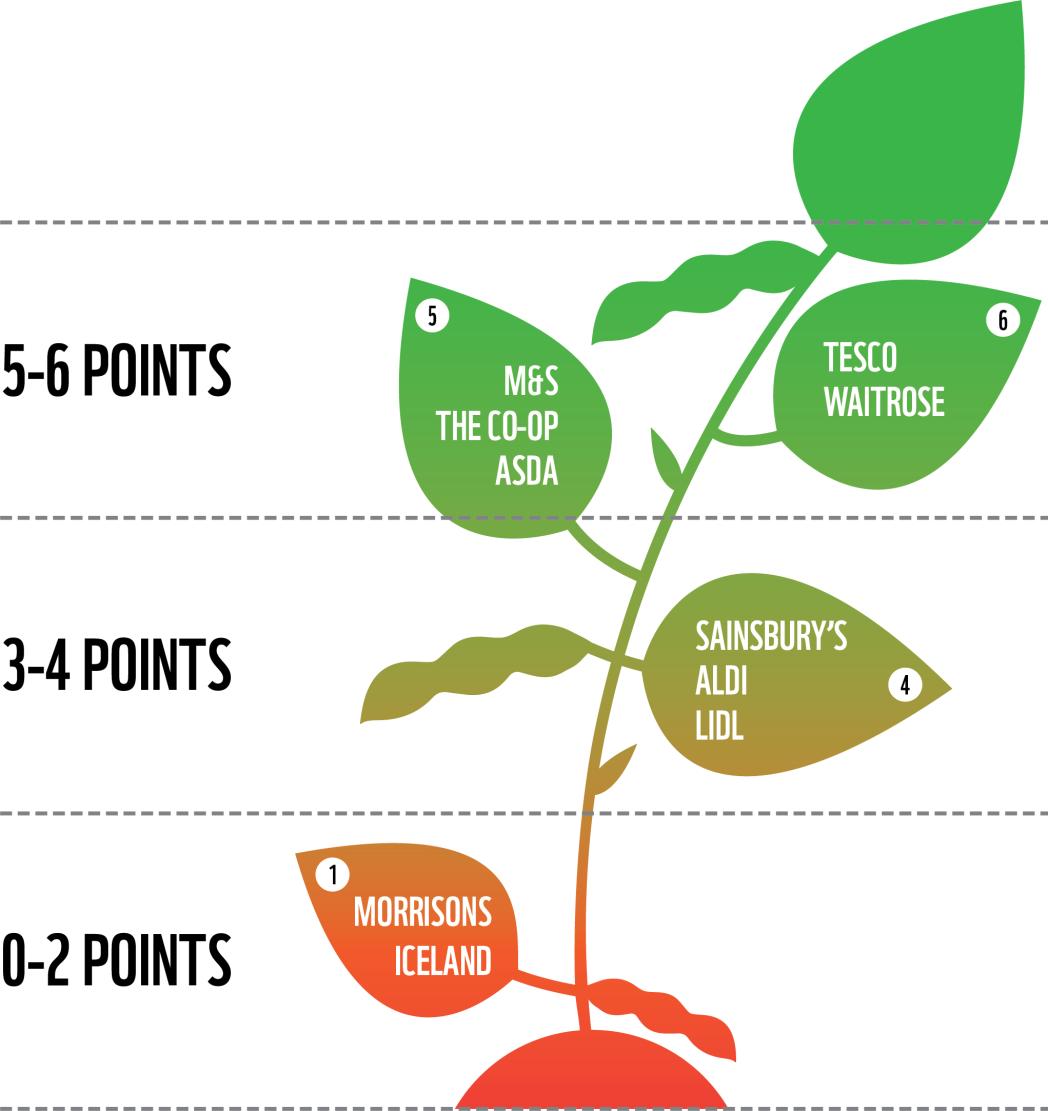
What our scoring showed:
All of the retailers have now started to make progress on tackling deforestation associated with soy used in their UK supply chains, but there are some clear front runners and still those that are barely in the starting blocks.
Our scoring has showed that Iceland and Morrisons, both lacking a clear commitment or action plan, are lagging behind. In the middle of the pack are The Co-Op, Aldi, Asda and Lidl, who are demonstrating commitment by purchasing zero-deforestation soy credits to cover their volumes by the end of 2020. While this is a step forward and we acknowledge the role credits have played in signalling demand for sustainable soy, action is now needed to shift the wider supply chain and we urge retailers to move certified physical supply of soy as fast as possible. With a credible plan to reach 100% physically certified soy, Sainsbury’s also ranked with the middle performers, but lost a point for not naming which standards they accept as zero conversion and zero deforestation.
Tesco and Waitrose are the two UK retailers leading the way as they achieved full marks against our scoring criteria. They have set out a clear pathway to deforestation and conversion free soy, and along with M&S, have ambitious aspirations to source from entire landscapes which are verified as zero-deforestation soy sourcing areas (see Box 1). Tesco however, is the only retailer to have an explicit commitment to this, demonstrating that they recognise the importance of multi-actor landscape approaches, like the Amazon Soy Moratorium, to eliminate deforestation from soy production at scale and at speed.
Our scoring criteria also calls out the importance of engaging in sector wide action to tackle deforestation at scale and one example of this is through the Cerrado Manifesto Statement of Support (SoS).
Recent publication of these soy policies represents significant progress and sends strong demand signal for deforestation and conversion-free soy in the UK. To read more about our results, read our report, which will share more about how we’ve scored and what we think needs to happen next.
A big step forward, but more to do. So what next?
Commitments and policies are just the first step on the journey to tackle deforestation. For these to be effective, all of these retailers need to implement their action plans and publicly report on progress being made. Those retailers that are lagging behind should publish ambitious and time-bound commitments as soon as possible. Though there were retailers who achieved top marks, their soy sustainability journey is far from over.
To reach the ultimate goal of conversion-free soy in the UK by end 2020 and to support the entire supply chain to achieve this at pace, we urge retailers to consider our following recommendations:
-
Broaden scope of commitment and action beyond UK soy supply chains to international supply chains (i.e. are applied at Group level)
-
Retailers should support transformative industry-wide solutions
-
Support agricultural production on rehabilitated abandoned or degraded land, and support efforts to restore native vegetation
-
Retailers should work with UK government to ensure that the legal frameworks needed to support the entire supply chain to go deforestation and conversion-free are put in place
Soy driven deforestation in South America, including in the Cerrado - an ecosystem vital to global biodiversity and climate - must end if we are to fight against climate change and nature loss. The UK has a significant overseas footprint for soy and so has a key role to play. We at WWF-UK urge retailers to go as far as they can to make progress towards conversion free soy in the final run up to 2020.
FOOTNOTES:
1. What are landscape approaches and how could they help to tackle deforestation? A landscape approach to halting deforestation entails working across sectors and beyond the scale of individual farms, forest management units and protected areas to secure food, fibre and energy production, improvements in livelihoods and ecosystem conservation.
Landscape-level approaches have strong potential to turn the tide on biodiversity loss, climate change and social inequity, as well as enabling companies to scale up their efforts to tackle deforestation in a way they cannot do on their own. Thereby helping them to meet their own deforestation-free commitments as well as those under the CGF, NY Declaration on Forests and SDGs.
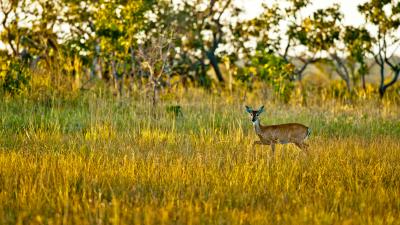
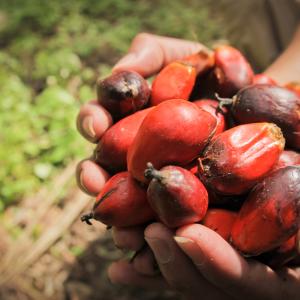 8 things to know about palm oil
8 things to know about palm oil
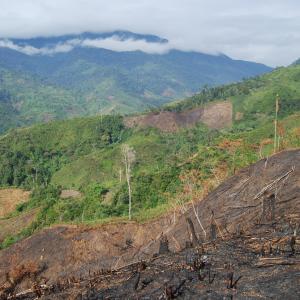 5 ways to stop deforestation in our food
5 ways to stop deforestation in our food
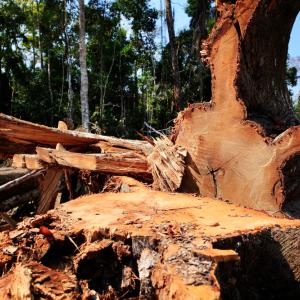 Our 10 myths about deforestation
Our 10 myths about deforestation